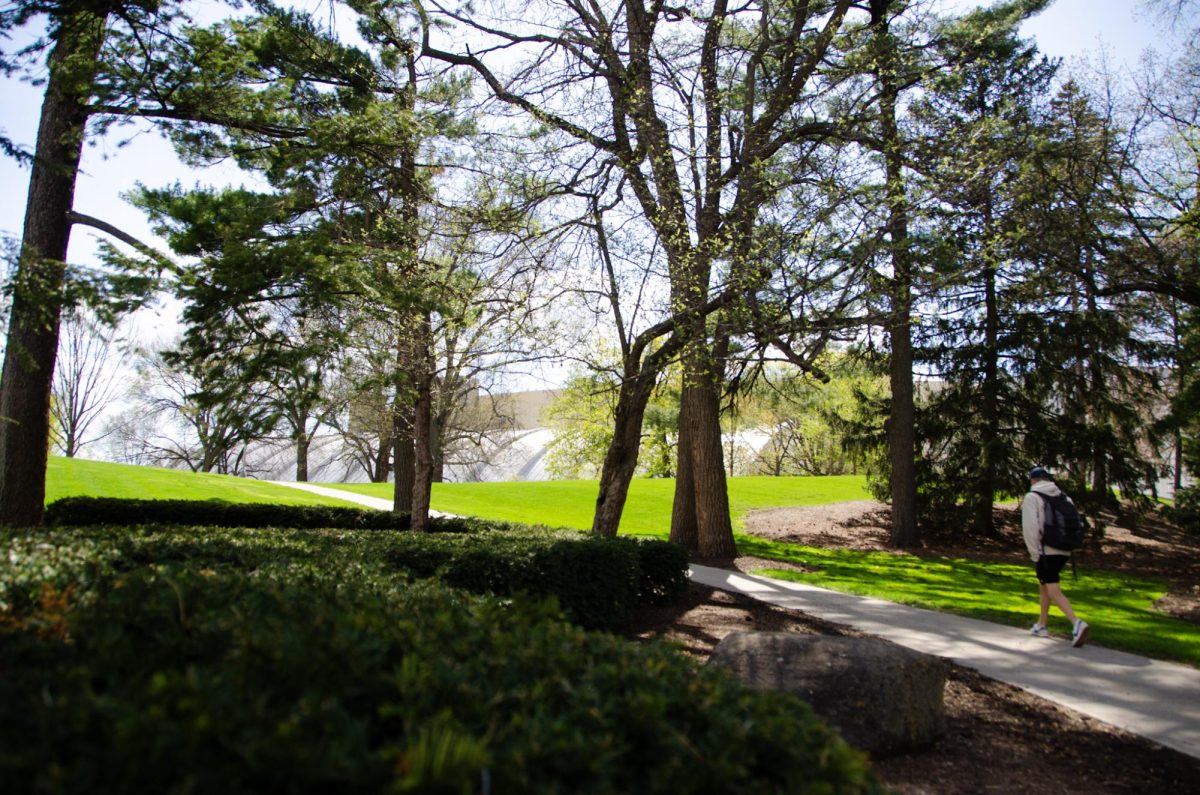Low crime rates and healthy neighborhood life and food contributed to naming Madison to the top 25 healthiest and happiest cities in the nation, according to the a recent ranking.
Earlier this month, the Huffington Post released a report of the “25 Happiest, Healthiest Cities” and ranked Madison No. 8 on the list, which used measures ranging from access to green space to disease prevention in order to determine the rankings.
The report cited the commitment of community members to consuming healthy food as one of the factors that led to the ranking, mentioning the city’s status as hosting the largest producer-only farmer’s market in the world. The article also described Madison’s beautiful scenery and two lakes as a contributing factor to the happiness of its citizens.
The University of Wisconsin Arboretum is also a source of happiness for the city’s population as it contains miles of trails and savannah, according to the report.
Katie Crawley, Mayor Paul Soglin’s spokesperson, said the food programs and safety of the city contributed to this ranking among other factors.
“I think basically they took an overall look at the quality of life in Madison,” Crawley said.
The report from the Huffington Post added Madison also has a high civic involvement, largely due to the fact that it contains a college campus and a state capitol. The report said this contributes to the safety aspect, as citizens are vigilant and look out for one another.
Volunteerism was cited in the report as another reason Madison made the cut because it has been shown to raise self esteem, lower risk of heart disease and increased lifespan.
Crawley said the list probably left out many other factors that would contribute to Madison’s healthy and happy quality of life.
“I don’t think they even mentioned all the reasons that Madison’s a great city,” Crawley said.
Crawley added health standards might also have factored in to the decision.
Jeff Golden, Public Health Madison and Dane County spokesperson, said PHMDC has many projects, including food safety and inspections, that could contribute to Madison’s health, although he added that he could not pinpoint one thing that would have contributed to this ranking.
“We’re kind of on the frontline of many things that define a healthy community,” Golden said.
Golden said in addition to inspections for restaurants and food carts, the organization inspects wells and other facilities as part of its environmental health program.
On the community health side, Golden said, PHMDC is very active in encouraging immunizations and has several free immunization clinics in order to serve people who do not have insurance. The organization also works to control infectious disease outbreaks, Golden said.
The Women, Infants and Children program is also supported by PHMDC, and it provides nutritional assistance to women and children who cannot afford proper food. Golden said the program has 5,000-6,000 clients.
Overall, Golden said PHMDC is pleased with the rankings and hopes that it contributed to the healthiness of Madison.
The other cities that made the cut included Minneapolis, Salt Lake City and St. Paul, Minn. San Jose, Cali., took the number one spot mostly due to its large number of organic produce eaters, the report said.












